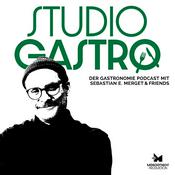22 Episoden
- Drohnen und Künstliche Intelligenz sind aus modernen Kriegen kaum noch wegzudenken. Seit 2001 gehört die permanente Angst vor US-Drohnenangriffen zum Alltag vieler Menschen in Afghanistan oder im Jemen. Im Gazastreifen wird KI in großem Umfang für Luftangriffe, die Überwachung der Bevölkerung und das Aufspüren möglicher Ziele eingesetzt. Auch in der Ukraine beeinflusst die massenhafte Produktion kommerzieller Drohnen, die kostengünstig gegen klassische Militärtechnologie eingesetzt werden, maßgeblich den Kriegsverlauf.
Der Einsatz von KI und Drohnentechnologie verändert grundlegend, wie Kriege geführt werden – und stellt die bisherige Vorherrschaft konventioneller militärischer Macht zunehmend infrage. Die Tötungsmaschinerie wird dabei von riesigen Datenmengen und deren automatisierter Auswertung angetrieben.
Doch wer trägt Verantwortung für gezielte Tötungen, wenn letztlich eine Maschine oder ein Algorithmus über Leben und Tod entscheidet? Wie lässt sich der Einsatz von KI im Einklang mit Menschenrechten und dem Völkerrecht regulieren? Und vor allem: Welche Rechte und Handlungsmöglichkeiten haben die Betroffenen? Im Gespräch mit Anne Schroeter (ECCHR) sind Jutta Weber (Wissenschafts- und Technikforscherin, Philosophin, Medienwissenschaftlerin sowie Professorin für Mediensoziologie an der Universität Paderborn, Leiterin des Forschungsverbunds MEHUCO) und Andreas Schüller (Programmleiter des Bereichs Völkerstraftaten und rechtliche Verantwortung beim ECCHR, wo er u.a. Betroffene US-amerikanischer Drohnenangriffe unterstützt).
Quellen in dieser Folge genannter Berichte:
Yuval Abraham: ‘Lavender’: The AI machine directing Israel’s bombing spree in Gaza
Future of Life Institute: Slaughterbots
Future of Life Institute: Slaughterbots – if human: kill()
Marc Santora, Lara Jakes, Andrew E. Kramer, Marco Hernandez and Liubov Sholudko: A Thousand Snipers in the Sky: The New War in Ukraine
Human Rights Watch: A Hazard to Human Rights: Autonomous Weapons Systems and Digital Decision-Making
ECCHR: Ramstein vor Gericht: Deutschlands Rolle bei US-Drohnenangriffen im Jemen - We have been raised and operate in an environment in which narrations on “migration” and “migrants” are intrinsically racist and colonial. The terms themselves attempt to eclipse and decontextualise Global South mobility within a deeply imbalanced and exploitative postcolonial global system. This allows policymakers to target racialized people by making their movement, stay and activities irregular through reforms focused on excluding them from legality.
Public acceptance of these policies is enabled by an often-non-critical media discourse which further dehumanizes migrants”. These othering narratives run deep and without actively seeking to identify and deconstruct them, they will be reproduced even by those acting for the interest of “migrants”.
In these circumstances, can we ever talk of “migrants” and “migration” without perpetuating racism and colonialism? How much do narratives matter in efforts for social justice?
In this episode, listen to the live recording of an evening event hosted by Hanaa Hakiki from ECCHR’s Border Justice team as she is joined by guests to explore how deeply narratives on migration are still trapped in racism and colonialism. Together they discuss knowledge and narrative formation, the pseudo-science of constructed identities and categories, as well as the aliveness of colonization coupled with collective amnesia. Thinking beyond the present, the guests talk about the power of reimagining new futures, of reclaiming language and celebrating amazing human connections.
Hanaa’s guests are Aghogho Akpome, Musa Okwonga and Sandra Alloush. Aghogho is a narratives specialist and associate professor from the University of Zululand. Through his project, “The refugee ‘crisis’ and European re-imaginings of Africa”, he has analysed the portrayal of black African refugees by authors, filmmakers and playwrights. Musa is a widely published journalist, the author of a number of books including, “In the End It was All About Love” and he hosts a very popular football podcast and Sandra is a Syrian refugee journalist and documentary filmmaker and vice chair of the European Network Against Racism. - Listen to the United Nations Special Rapporteur on the situation of human rights in the Palestinian Territory occupied since 1967. Francesca speaks about her mandate in the context of the ongoing genocide in Gaza, and the increasing threat to the international legal order. She also shares her experiences of repression and human rights violations she witnessed during her visit to Germany in February 2025.
In conversation with Francesca Albanese are Fiona Thorp, Legal Fellow in the Palestine Team at ECCHR, and Chantal Meloni, Senior Legal Advisor in the International Crimes and Accountability program.
ECCHR has worked on cases relating to crimes committed by Israeli forces against Palestinian civilians for over a decade. Recently, ECCHR has filed several requests for provisional measures against German exports of weapons of war and other military equipment to Israel, which are used in attacks on the Palestinian population in Gaza. We have also compiled a detailed Q&A on the topic of genocide in Gaza and on the arrest warrants against Israeli Minister Benjamin Netanyahu and former-Israeli Defense Minister Yoav Gallant.
Let’s stay in touch! You want to stay up to date on ECCHR’s cases, events and publications? Subscribe to our newsletter.
Or support our work with your donation!
image © Laura Fiorio - Die neue Folge „Staatsräson gegen Grundrechte“ beschäftigt sich mit der deutschen Staatsräson im Kontext der anhaltenden Kriegsverbrechen Israels in Gaza. Welche politischen, rechtlichen sowie gesellschaftlichen Auswirkungen hat sie im Inneren? Und welche solidarischen Allianzen lassen sich gegen die repressiven Maßnahmen schließen?
Im Gespräch mit Amira Tamim (ECCHR Alumna) sind Simin Jawabreh, Aktivistin und Politikwissenschaftlerin und Paula Zimmermann, Fachreferentin für Meinungs- und Versammlungsfreiheit bei Amnesty International.
Das ECCHR hat mehrere Eilanträge gegen deutsche Kriegswaffen- und Rüstungsexporte nach Israel gestellt. Unsere Serie von Klagen und Eilanträgen begann am 11. April 2024 vor dem Verwaltungsgericht Berlin. Erfahrt hier mehr über den Fall. In unserem Q&A findet ihr Fragen und Antworten zum Thema Völkerrecht und den aktuellen Krieg in Gaza.Auch zum rechtlichen Hintergrund des Genozids sowie aktuellen Entwicklung haben wir Fragen und Antworten aufbereitet. Diese findet ihr hier.
Amnesty International veröffentlichte gerade einen Bericht, in dem sie zu dem Schluss kommen, dass Israel in Gaza einen Genozid begeht. Den Bericht findet ihr in englischer Sprache hier. Zur systematischen Einschränkung und Unterdrückung der Versammlungsfreiheit in Europa gab Amnesty diesen Bericht in englischer Sprache heraus.
Simin Jawabreh hat diesen Artikel zum kürzlich wieder eingeführten Ordnungsrecht und den damit verbunden Repressionen an deutschen Hochschulen verfasst. - In this episode, Ethiopian-American author Maaza Mengiste and Italian artist and photographer Laura Fiorio sit down with ECCHR General Secretary Wolfgang Kaleck.
The conversation centers on the colonial history of Italy in Ethiopia. Mengiste talks about the often overlooked role of women in Ethiopia's fight against Italian occupation during World War II, and Italian artist Fiorio talks about her work “My fascist Grandpa.”
Both bring their perspectives to contextualize photography and its manifold meaning and ability to hold and tell truths.
© Vittoria Trovato / Laura Fiorio
© Nina Subin / Maaza Mengiste
Weitere Kunst Podcasts
Trending Kunst Podcasts
Über Framing Human Rights
ECCHR’s podcast about activism, art and justice.
The European Center for Constitutional and Human Rights (ECCHR) is an independent, non-profit legal and educational organization dedicated to enforcing civil and human rights worldwide.
Together with those affected and partners worldwide, ECCHR uses legal means to end impunity for those responsible for torture, war crimes, sexual and gender-based violence, corporate exploitation and fortressed borders.
Find out more here: www.ecchr.eu and in our Living Open Archive: loa.ecchr.eu
Podcast-WebsiteHöre Framing Human Rights, life is felicious und viele andere Podcasts aus aller Welt mit der radio.de-App

Hol dir die kostenlose radio.de App
- Sender und Podcasts favorisieren
- Streamen via Wifi oder Bluetooth
- Unterstützt Carplay & Android Auto
- viele weitere App Funktionen
Hol dir die kostenlose radio.de App
- Sender und Podcasts favorisieren
- Streamen via Wifi oder Bluetooth
- Unterstützt Carplay & Android Auto
- viele weitere App Funktionen


Framing Human Rights
Code scannen,
App laden,
loshören.
App laden,
loshören.







































